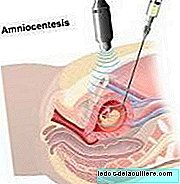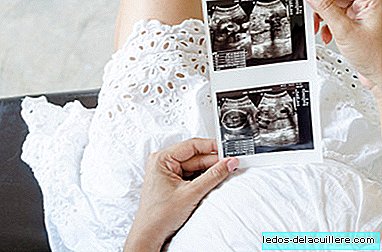
Peripartum cardiomyopathy is a rare disorder in which a weak heart is diagnosed during the last month of pregnancy or in the first five months after delivery. It is a complication that can be derived from congenital heart disease.
Cardiomyopathy occurs when there is damage to the heart, the heart muscle is weakened and cannot pump blood efficiently. Decreased cardiac function affects the lungs, liver and other body systems.
Peripartum cardiomyopathy may occur in women of childbearing age of any age, but it is more common after the age of 30.
Among others risk factor's They can be mentioned: obesity, personal history of heart disorders such as myocarditis, consumption of certain medications, smoking, alcoholism, multiple pregnancies, or malnutrition ...
Symptoms of peripartum cardiomyopathy
Some of the symptoms of this cardiac complication during pregnancy They are:
- Fatigue
- Fast heartbeat or intermittent beats (palpitations)
- Increased nighttime urination (nocturia)
- Trouble breathing with activity or at bedtime
- Swelling of the ankles
Although, as we see, these are common symptoms during the last trimester of pregnancy, so it is specifically detected in physical exams. It will look for signs of fluid in the lungs and auscultation of the chest with a stethoscope will reveal lung crackles, a rapid heart rate or abnormal heart sounds.
The liver may be enlarged and neck veins distended. Blood pressure may be low or may fall when the person stands up.
Complications of peripartum cardiomyopathy
Urgent medical attention should be sought if the woman has chest pain, palpitations, fainting or other new or unexplained symptoms.
- Cardiac arrhythmias (can be fatal)
- Congestive heart failure
- Pulmonary embolism (blood clots in the lungs)
Hospitalization is usually necessary of women with peripartum cardiomyopathy until acute symptoms decrease. This cardiac dysfunction is usually reversible, although the mortality rate can be up to 25 to 50%.
The prognosis is good in those women whose heart returns to normal size after the baby is born. If the heart remains enlarged, future pregnancies can cause heart failure. It is not known how to predict who will recover and who will suffer from severe heart failure.
Women who develop peripartum cardiomyopathy are at high risk of presenting the same problem with future pregnancies. Your doctor may advise you to avoid a new pregnancy if you have had heart failure during a previous pregnancy.
Peripartum cardiomyopathy It can be prevented thanks to healthy lifestyle habits: a nutritious and balanced diet, through moderate exercise to increase cardiovascular health and avoiding the consumption of tobacco and alcohol.












